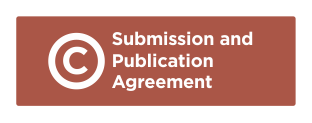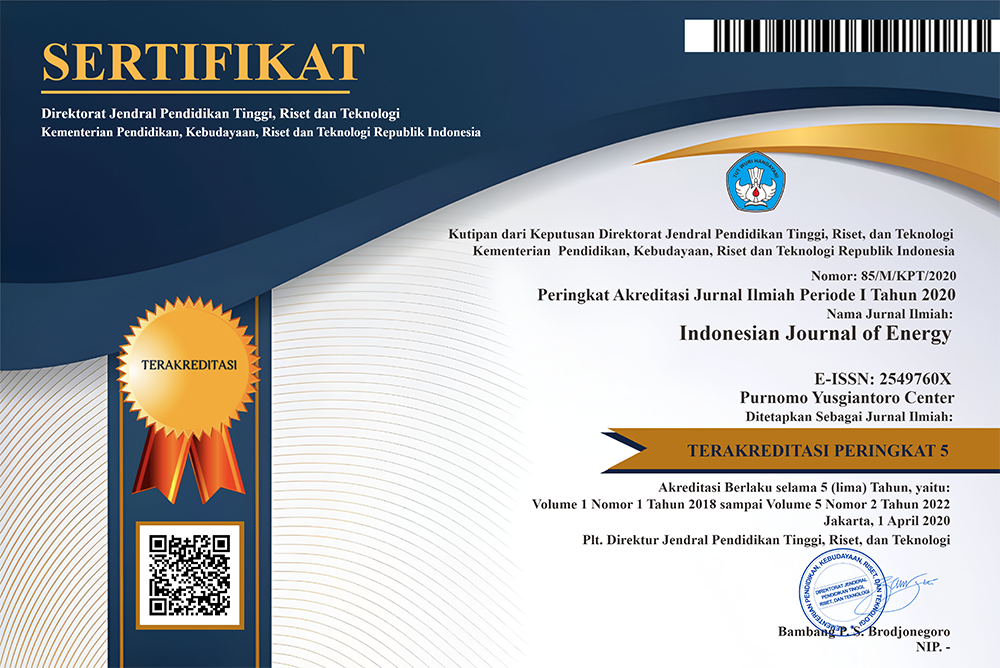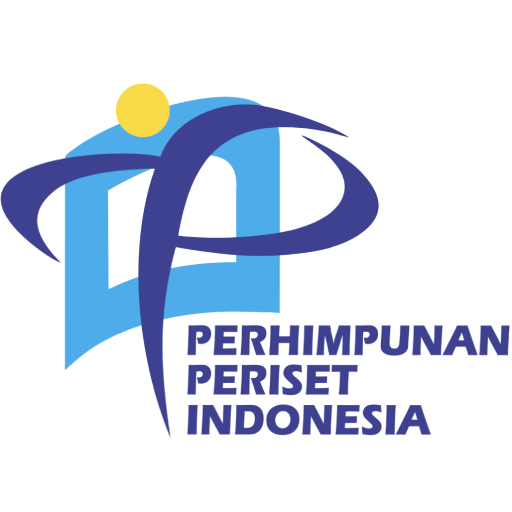Reorienting the Principle of Sustainable Development in Investing Policy Utilizing Natural Resources and Energy in Indonesia
Abstract
The exploitation of natural resources affects environmental damage and does not comply with environmental licensing. The purpose of this article to find out and understand related to development through investments that can achieve people's welfare, and analyze the reorientation of sustainable development principles in investing by utilizing pro-environment natural resources. This result is reorientation the principle of sustainable development should be done by integrating the activities of the investment policy of natural resources into the economic system and environmental based budget. The conclusions are first, the perspective of the Indonesian government in development through investments isn't directly proportional to the welfare of the people. Current developments tend to the developmental and anthropocentrism paradigms; and secondly, reorientation on the principle of sustainable development since changing the government's perspective on development using an ecocentrism paradigm, and integrating natural resource investment activities into the economic system or environment-based budgets.
Downloads
References
Akib, M. (2016). Hukum lingkungan perspektif global dan nasional (Ed. Rev. Cet.3). PT Rajawali Pers.
Ali, A. (2001). A conceptual framework for environmental justice based on shared but differentiated responsibilities. CSERGE Working Paper EDM (01–02), 6.
Backstrand, K. (2006). Democratizing global environmental governance? Stakeholder democracy after the world summit on sustainable development. European Journal of International Relations, 12(4), 470. https://doi.org/10.1177/1354066106069321
Basiago, A. (1999). Economic, social, and environmental sustainability in development theory and urban planning practice. The Environmentalist, 19, 150–151.
Gopel, M. (2016). The great mindshift: How a new economic paradigm and sustainability transformations go hand in hand. Springer Open & Wuppertal Institute, AFES-PRESS e.V.
Gustafsson, S., Hermelin, B., & Smas, L. (2019). Integrating environmental sustainability into strategic spatial planning: the importance of management”. Journal of Environmental Planning and Management, 62(8), 1321–1338. https://doi.org/10.1080/09640568.2018.1495620
Hirwa, H. (2021). Insights on water and climate change in the Greater Horn of Africa: Connecting virtual water and water-energy-food-biodiversity-health nexus. Sustainability, 13, 6483. https://doi.org/10.3390/su13116483
International Court of Justice (ICJ). (1996). Advisory opinion legality of the threat or use nuclear weapons case: 19.
Klarin, T. (2018). The concept of sustainable development: From its beginning to the contemporary issues. Zagreb International Review of Economics & Business, 21(1), 76.
Kostakis, I., Lolos, S., & Sardianou, E. (2017). “Foreign direct investment and environmental degradation: Further evidence from Brazil and Singapore”. Journal of Environmental Management and Tourism, 8(1), 46. https://doi.org/10.14505/ jemt.v8.1(17).04
Mensah. J., (2019). Sustainable development: Meaning, history, principles, pillars, and implications for human action: Literature Review. Cogent Social Sciences, 5–6. https://doi.org/10.1080/23311886.2019.1653531
Nurjaya, I. N. (2007). Pengelolaan sumber daya alam dalam perspektif otonomi: Tinjauan hukum dan kebijakan”, Jurnal Suloh, 5(1), 1.
Odum, E. P. (1993). Dasar-dasar ekologi, translated by Tjahjo Samingan. Gadjah Mada University Press.
Oliveira, E., Tobias, S., & Hersperger, A. M. (2018). Can strategic spatial planning contribute to land degradation reduction in urban regions? State of the art and future research, Sustainability, 10(949), 1–23. https://doi.org/10.3390/su10040949
Pramudianto, A. (2017). Hukum lingkungan internasional, (Ed. I). Rajawali Pers.
Redi, A. (2014). Hukum sumber daya alam dalam sektor kehutanan. Sinar Grafika.
Romeiro, A. R. (2012). Sustainable development: An ecological economics perspective, Estudos Avançados, 26(74), 65–67. https://doi.org/10.1590/S0103-40142012000100006
Soemarwoto, O. (1991). Ekologi, lingkungan hidup dan pembangunan. Djambatan.
Soemarwoto, O. (1999). Pembangunan berkelanjutan. Penerbit Alumni.
Spahn, A. (2018). “The first generation to end poverty and the last to save the planet?”—Western individualism, human rights, and the value of nature in the ethics of global sustainable development, Sustainability,10(6), 5¬–10. https://doi.org/10.3390/su10061853
Surono, A. (2008). Penyelesaian konflik sumber daya hutan secara kolaboratif (kemitraan). Fakultas Hukum Universitas al-Azhar Indonesia.
Trebilcock, M. J. & Prado, M. M. (2014). Advanced introduction law and development. Edward Elgar Publishing.
United Nations Development Programme/UNDP. (2014). Environmental justice comparative experience in legal empowerment.
Witter, H. & Birner, R. (2005). Between conservation, eco-populism, and developmentalism Discourse in biodiversity policy in Thailand and Indonesia”, CAPRI Working Paper No.37, International Food Policy Research Institute, p. 1.
Wawryk, A. (2014), International energy law: an emerging academic discipline. In P. Babie & P. Leadbeter, Law as Change: Engaging with the life and scholarship of Adrian Bradbrook (pp. 223¬–255). University of Adelaide Press. https://www.jstor.org/stable/10.20851/j.ctt1sq5xcn.14
















